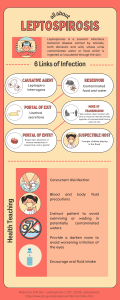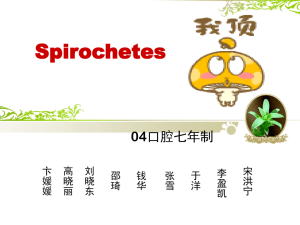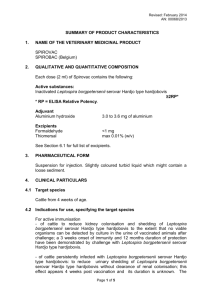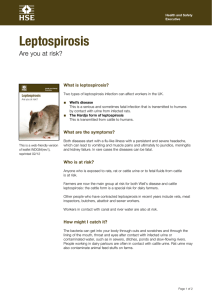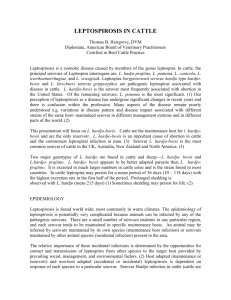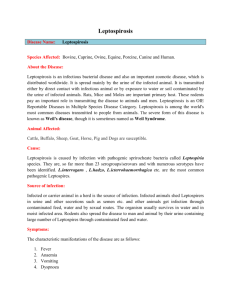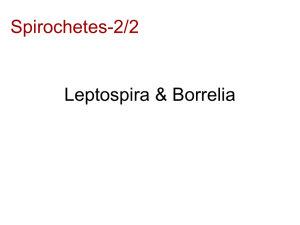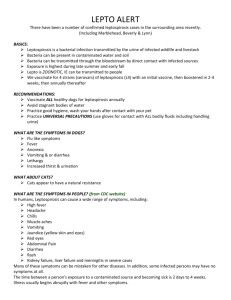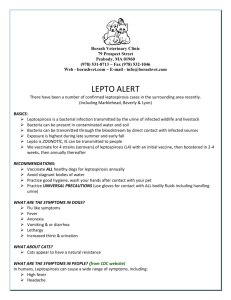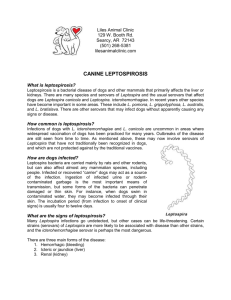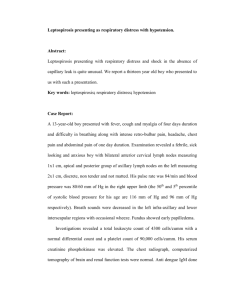Introduction Leptospira borgpetersenii is a bacterial pathogen of
advertisement
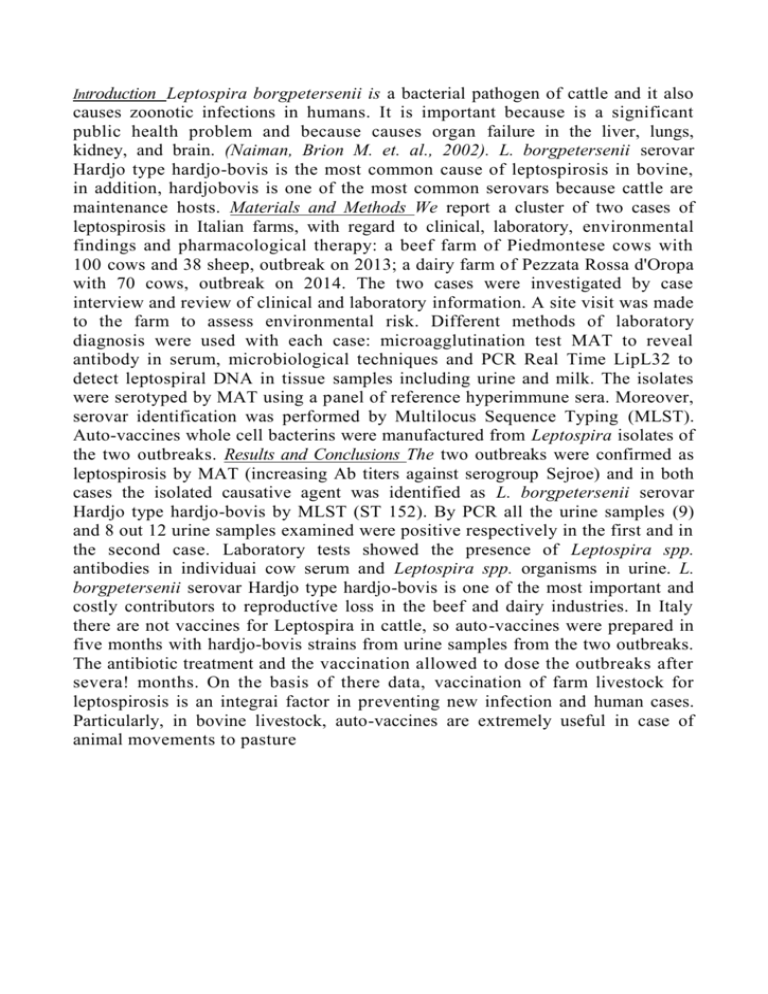
Introduction Leptospira borgpetersenii is a bacterial pathogen of cattle and it also causes zoonotic infections in humans. It is important because is a significant public health problem and because causes organ failure in the liver, lungs, kidney, and brain. (Naiman, Brion M. et. al., 2002). L. borgpetersenii serovar Hardjo type hardjo-bovis is the most common cause of leptospirosis in bovine, in addition, hardjobovis is one of the most common serovars because cattle are maintenance hosts. Materials and Methods We report a cluster of two cases of leptospirosis in Italian farms, with regard to clinical, laboratory, environmental findings and pharmacological therapy: a beef farm of Piedmontese cows with 100 cows and 38 sheep, outbreak on 2013; a dairy farm of Pezzata Rossa d'Oropa with 70 cows, outbreak on 2014. The two cases were investigated by case interview and review of clinical and laboratory information. A site visit was made to the farm to assess environmental risk. Different methods of laboratory diagnosis were used with each case: microagglutination test MAT to reveal antibody in serum, microbiological techniques and PCR Real Time LipL32 to detect leptospiral DNA in tissue samples including urine and milk. The isolates were serotyped by MAT using a panel of reference hyperimmune sera. Moreover, serovar identification was performed by Multilocus Sequence Typing (MLST). Auto-vaccines whole cell bacterins were manufactured from Leptospira isolates of the two outbreaks. Results and Conclusions The two outbreaks were confirmed as leptospirosis by MAT (increasing Ab titers against serogroup Sejroe) and in both cases the isolated causative agent was identified as L. borgpetersenii serovar Hardjo type hardjo-bovis by MLST (ST 152). By PCR all the urine samples (9) and 8 out 12 urine samples examined were positive respectively in the first and in the second case. Laboratory tests showed the presence of Leptospira spp. antibodies in individuai cow serum and Leptospira spp. organisms in urine. L. borgpetersenii serovar Hardjo type hardjo-bovis is one of the most important and costly contributors to reproductíve loss in the beef and dairy industries. In Italy there are not vaccines for Leptospira in cattle, so auto-vaccines were prepared in five months with hardjo-bovis strains from urine samples from the two outbreaks. The antibiotic treatment and the vaccination allowed to dose the outbreaks after severa! months. On the basis of there data, vaccination of farm livestock for leptospirosis is an integrai factor in preventing new infection and human cases. Particularly, in bovine livestock, auto-vaccines are extremely useful in case of animal movements to pasture
